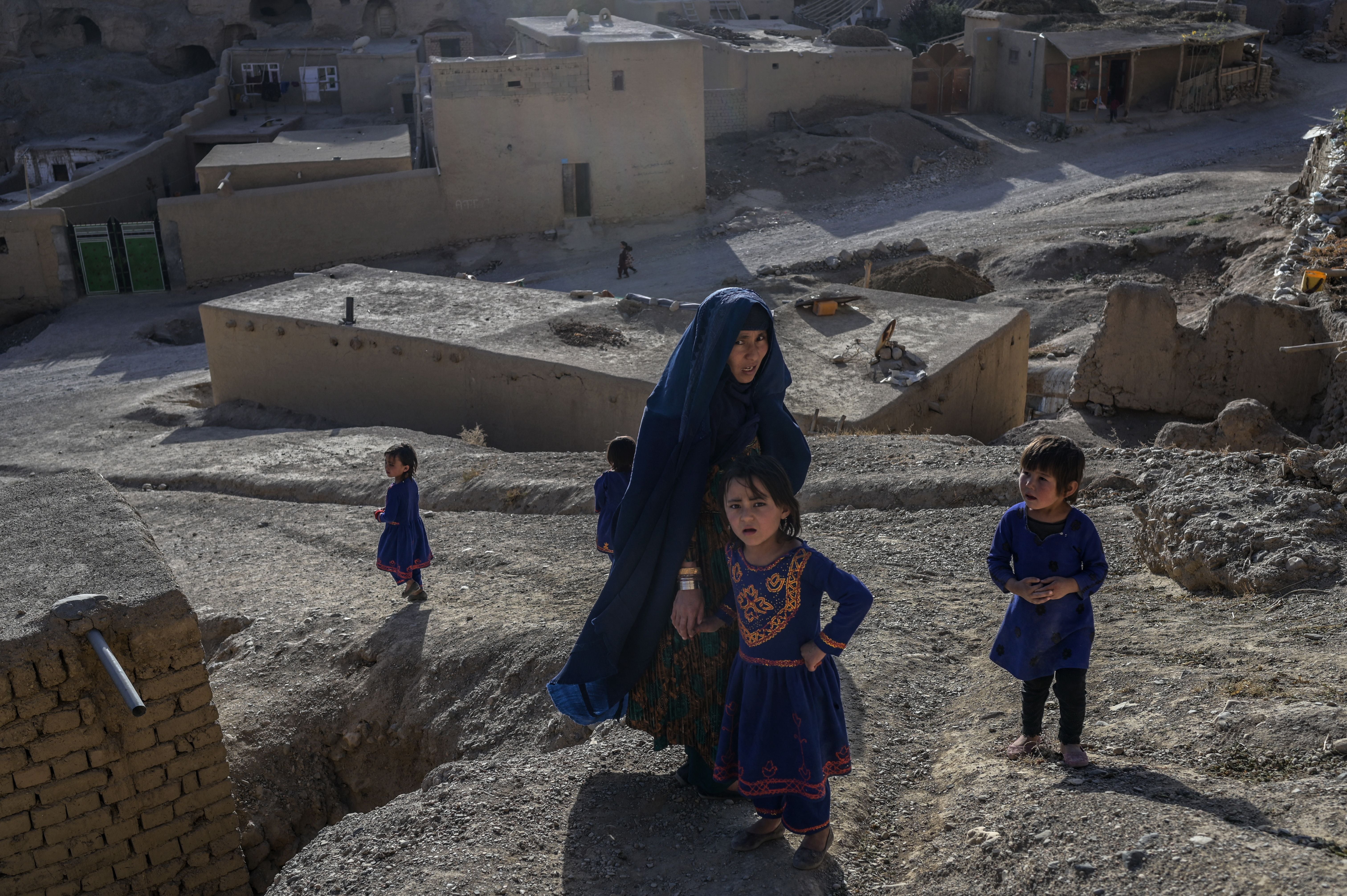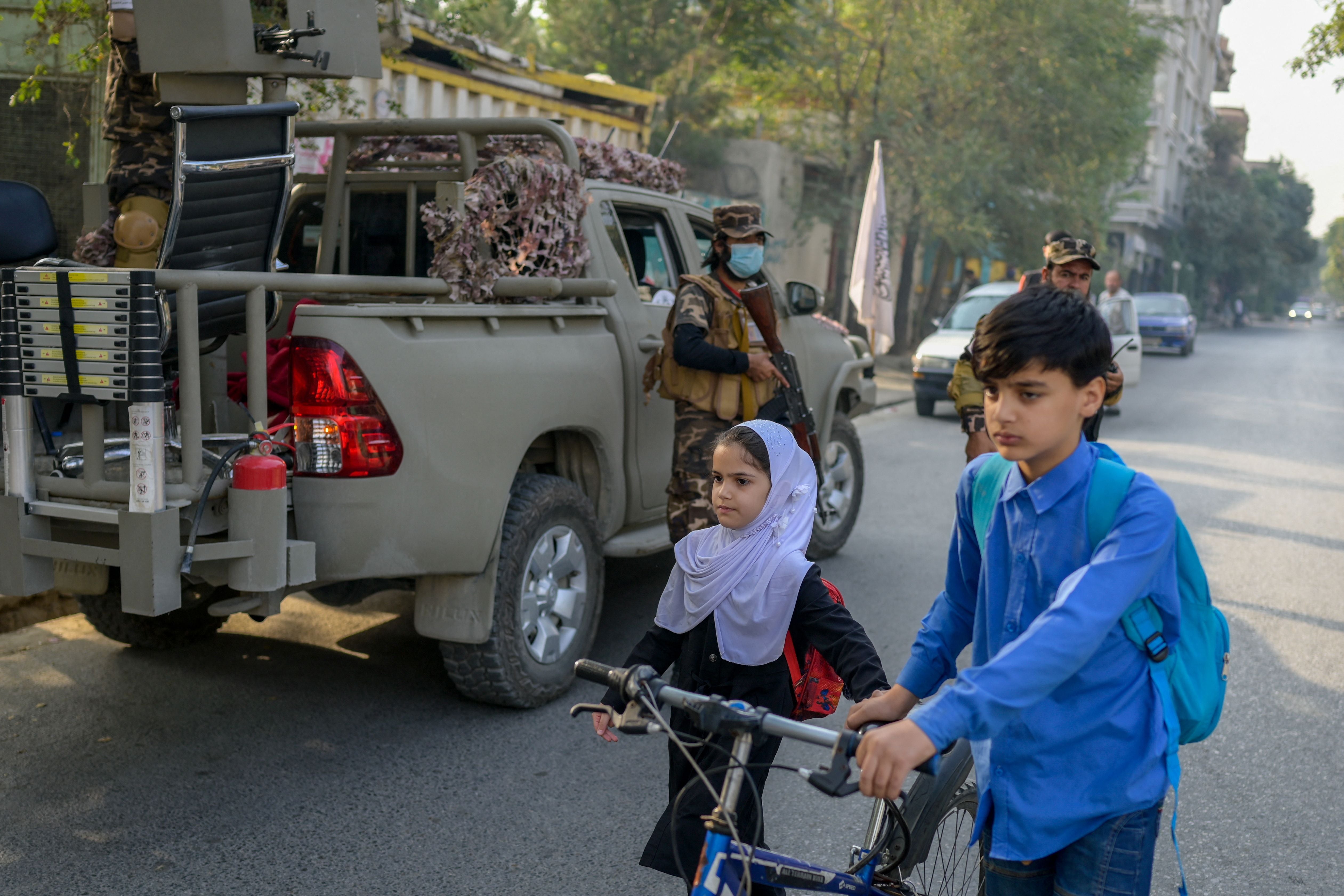100 days since Taliban gained control: The Afghan women and children subsisting on raw flour facing toughest winter yet
‘We are worried about our children – they cry because they are hungry and that is so difficult,’ mother tells Maya Oppenheim


Your support helps us to tell the story
From reproductive rights to climate change to Big Tech, The Independent is on the ground when the story is developing. Whether it's investigating the financials of Elon Musk's pro-Trump PAC or producing our latest documentary, 'The A Word', which shines a light on the American women fighting for reproductive rights, we know how important it is to parse out the facts from the messaging.
At such a critical moment in US history, we need reporters on the ground. Your donation allows us to keep sending journalists to speak to both sides of the story.
The Independent is trusted by Americans across the entire political spectrum. And unlike many other quality news outlets, we choose not to lock Americans out of our reporting and analysis with paywalls. We believe quality journalism should be available to everyone, paid for by those who can afford it.
Your support makes all the difference.While the bitterly cold weather claims scores of lives in Afghanistan each winter, many fear this year will be far deadlier than others due to the nation grappling with its worst food crisis since records started.
Abdullah*, an eight-year-old boy living in the Taliban-seized country, is already feeling the grave effects of the humanitarian crisis.
“We have bread and sometimes rice, but never meat and fruit,” he tells The Independent. “We have so much less food than before and it makes me worried. Sometimes, when we don’t have food I go to sleep without eating anything.”
Zarghuna, his mother, says the family have been forced to resort to aid since the Taliban seized control of Afghanistan in mid-August.
“Our situation is not good,” the 35-year-old says. “A few days ago we received a sack of flour and we have started to eat that. Everything has become expensive. We cannot buy flour and oil anymore because the price is too high.”
Zarghuna, whose children are aged between one and 15, explains they have only been able to afford to eat once a day since the cost of food shot up after America withdrew troops in the wake of a two-decade-long war.
“We just have dinner in the evening,” she adds. “Sometimes we don’t even have that and we go to sleep without eating anything. In the morning, we just have tea. Me and my husband can go hungry but we are worried about our children – they cry because they are hungry and that is so difficult.”
Her comments come after it recently emerged more than half of the population in Afghanistan is facing acute hunger. Almost 23 million people will struggle to feed themselves this winter, with at least 14 million children among them, a report by Save the Children found.
They are putting stale bread in water to soften it up for the children
This marks a 35 per cent rise in hunger levels in comparison to last year – with just 5 per cent of households in Afghanistan currently able to get their hands on enough food to eat each day. Eight children from one family starved to death in western Kabul last month, according to Save the Children.
Orlaith Minogue, a senior conflict policy advisor at the charity, said some of the families they support have been subsisting on bread and eating just one meal a day.

“A big issue is mothers and fathers going without food as they give it to children,” Ms Minogue adds. “Also, they are putting stale bread in water to soften it up for the children. What we see extremely consistently is little to no access to any fruit or veg and no meat at all.”
She said the charity is particularly concerned about the plight of pregnant women – adding that it estimates more than 330,000 babies have been born in “the 100 days since the Taliban gained control of the country”.
Ms Minogue, whose charity runs mobile health services across ten provinces, said midwives are reporting all manner of concerning issues.
“A lot of women are giving birth alone in cold, dark places, with no electricity, and no access to healthcare,” she said. “Of course, that puts their lives and their babies’ lives in grave danger. Women are going into labour nowhere near a functioning health system as health systems in Afghanistan are in collapse.”
The humanitarian crisis ravaging Afghanistan is “truly horrific and extremely alarming”, she added, noting young kids are highly vulnerable to hunger and malnutrition. “It is the worst humanitarian crisis Afghanistan has faced in decades,” she said.
Ms Minogue says the food crisis stems from a brutal combination of drought, 18-months of Covid-related restrictions, as well as disintegrating security and conflict heavily disrupting agriculture, food importation, labour, and banking.
“Hunger is rife across the country,” she said. “Afghanistan experiences extremely harsh winters. Part of the country will be cut off from being reached by humanitarian organisations because of the mountainous terrain. It will be heavily snow-covered and inhospitable terrain. This is of urgent concern as it turns colder.”
Studies have found it is often women who eat “last and least” in nations grappling with war or hunger. To put this into context, some 60 per cent of the 690 million people currently starving or enduring food insecurity around the world are women and girls.
“I wish my husband could find work so we have food for our children,” Gul Pari*, a 35-year-old Afghan mother to four children, said. “We have had to reduce the number of meals we eat, and we only eat bread most of the time. When the children cry because they’re hungry I try to find some rice to give them. Otherwise, I find one or two potatoes to boil.”
The British Red Cross issued a warning on Wednesday that Afghanistan’s population is facing one of the bleakest winters in “living memory” unless aid and money can get to the nation in the space of just weeks. Temperatures plummet to as low as minus 25 in mountainous parts of Afghanistan.
“The guns may have fallen silent, but people are now afraid of hunger, the cold and the future,” Maryann Horne, the charity’s senior advisor on humanitarian crises, said. “They don’t have cash or jobs and there doesn’t seem to be any solution in sight.”
Ms Horne, who is in the Afghan capital of Kabul, noted urban poverty is a new issue in the country and is becoming more prevalent in places where citizens were previously fairly well-off.
“Millions face unimaginable food shortages, malnutrition and are being pushed further into extreme poverty,” Ms Horne adds. “Food prices are increasing dramatically, paid jobs are evaporating and the effects of the drought are rippling across the country. The Afghan people are looking to the international community for help but also hope.”
*Names have been changed to protect identities


Join our commenting forum
Join thought-provoking conversations, follow other Independent readers and see their replies
Comments